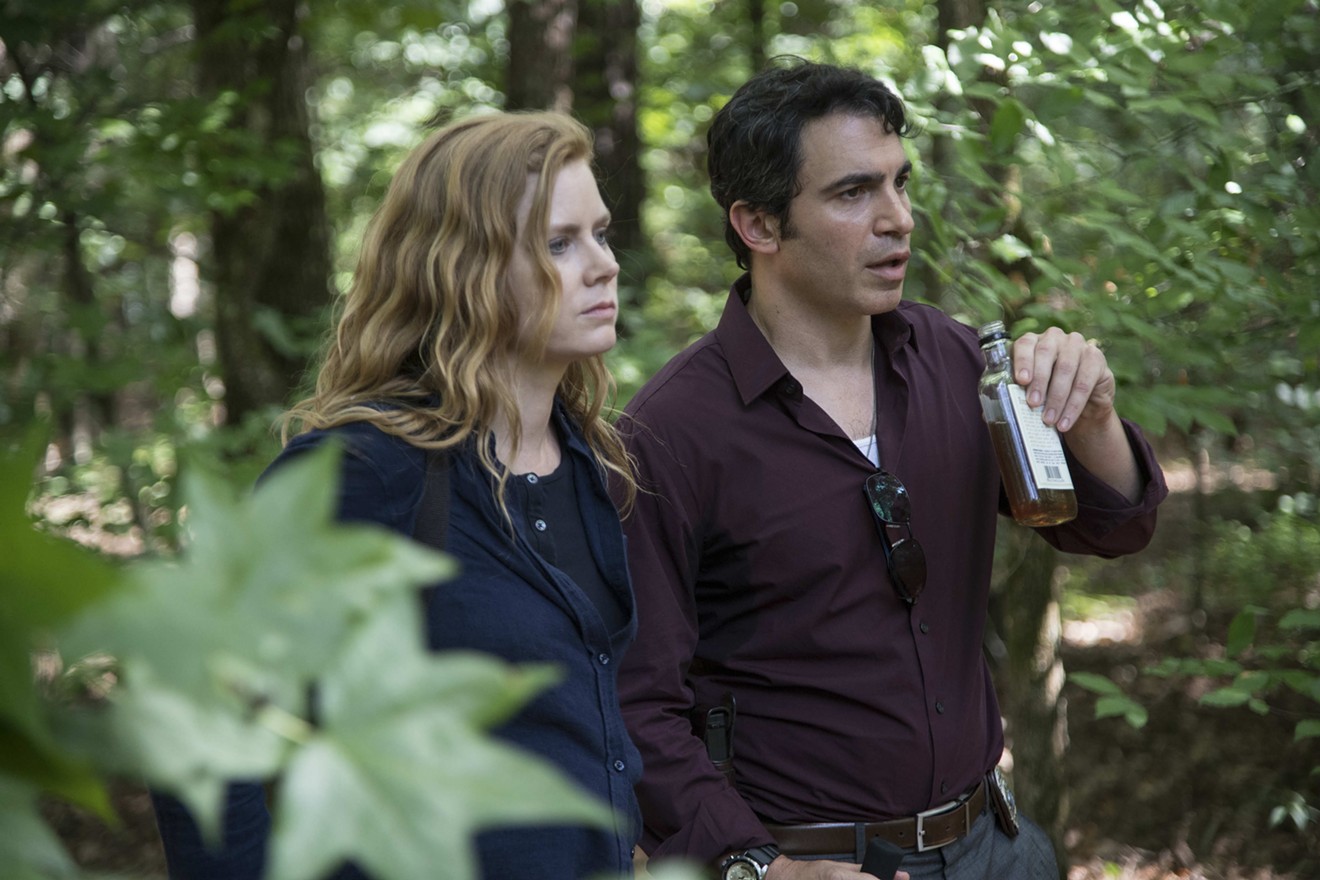Amy Adams stars as Camille Preaker, a journalist for the St. Louis Chronicle with a history of self-harm. When her avuncular boss (Miguel Sandoval) assigns her to cover the murder of a teenage girl in her hometown of Wind Gap, at the southern tip of Missouri, Camille reluctantly tosses a couple of bags in the trunk of her car; we hear the clinking of glass. In the driver’s seat, she transfers the contents of a miniature liquor bottle into a plastic water bottle and plugs her smashed smartphone into her car’s stereo system. Led Zeppelin’s “I Can’t Quit You Babe” blasts. This is not going to be a happy homecoming.
Camille’s mother, Adora (Patricia Clarkson), receives her coldly in her sprawling, dollhouse-like home; her milquetoast stepfather (Henry Czerny) retreats to his study with records and a pair of noise-canceling headphones. Camille barely knows her teenage stepsister, Amma (Eliza
In the hands of another director, Sharp Objects might be one eye-rolling cliché after another. Flynn’s novel drops the sullen, scarred Camille in the middle of a Southern Gothic murder mystery, but Vallée seems intent on disrupting the rhythms of
The writers, who include Flynn as well as series creator Marti Noxon (Mad Men, UnREAL, Dietland), don’t exactly hit viewers over the head with the retrograde gender politics of small-town America, but those dynamics are firmly on display. When another girl is found dead and her brother is seen weeping all over town, he becomes a suspect, because a young man who cries in public must be a sociopath. When Camille gives Richard a tour of the town’s past crime scenes, all the victims of the incidents she describes are teenage girls. She’s casual in her recounting of the terrible things done to them, as if to suggest sexual violence is just a way of life, a ritual most girls encounter on their way to adulthood. Each year, Adora hosts Calhoun Day, a Southern pride festival for which the town’s high schoolers put on a play reenacting Wind Gap’s most celebrated event: The time the wife of a Confederate soldier was tied to a tree and raped by multiple men rather than betray her kin.
It’s the container for all this that makes Sharp Objects unique — mesmerizing, even. Some sequences have the unsettling tenor of a horror film, as Vallée’s camera stalks Camille while she winds through her mother’s maze of hallways, her long-suppressed memories
Few directors are as effective at fusing music to
The contours of the story become more recognizable as Camille and Richard close in on the mystery, but Vallée still does his darnedest to jolt viewers awake with his destabilizing approach. Camille, too, is not your typical Strong Female Character, and Adams plays her not like some angst-ridden, Girl, Interrupted cliché of a troubled girl gone wild. Her pain isn’t sexy; Adams is beautiful, but the costume designers dress her in ratty long-sleeved shirts and jeans, her long hair a little unkempt, her body a reflection of Camille’s diet of liquor and candy bars. Weariness is her dominant mode; she’s broken, wounded, although Adams lets some warmth shine through despite the character’s edge, a kind of exhaustion that manifests as Southern sweetness.
It’s a fitting approach to a character who turns her pain on herself, as so many girls learn to do from such a young age. It’s hard to miss the message that a suffering woman is a beautiful thing.
Sharp Objects premieres July 8 on HBO.











